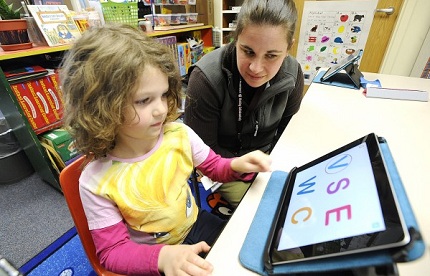The science of learning languages has been studied widely all over. Multi-lingual speakers, psychologists, educators and test subjects have provided valuable insights on the subject. Here we discuss 6 best ways to learn a language fast:
01. Learn Phrases First
A large number of people try to learn a new language by cramming hundreds of words at once. Yet, few others try to remember complete sentences. If you learn 100 new phrases, you may be able to communicate (verbally or writing) with a native speaker but if you learn 1000 new words, you may still find it hard to find the right word at the right time. Remember the thumb rule – phrases first, vocabulary second.
02. Have a Private Tutor teach you
 If you’re not really in a mood to spend hours every day (for months at a stretch) to learn to speak or write a new language, get in touch with one of the best tuition agencies in Singapore and have a good tutor assigned to you. A tutor will not only ‘teach’ you; you’ll also have someone with whom you can speak in a new language without any hesitation. This paves way for continuous improvement.
If you’re not really in a mood to spend hours every day (for months at a stretch) to learn to speak or write a new language, get in touch with one of the best tuition agencies in Singapore and have a good tutor assigned to you. A tutor will not only ‘teach’ you; you’ll also have someone with whom you can speak in a new language without any hesitation. This paves way for continuous improvement.
03. Watch Movies and Listen to Songs
Kids learn a language by observing the world around them. They learn 1 word, sentence or phrase at a time. If there’re not too many people talking in a new language (English or French, for example) around you, it’s a good idea to start watching movies in this language (with subtitles, if possible). Listening to songs (and memorizing lyrics) too can help you to learn a language in the most natural (and fun) way possible. Alternatively, you can also download podcasts and listen to them on your iPod.
04. Use Software and Apps
Why not utilize the new age applications (including mobile apps for iPhones and Android OS) and web based software to learn new words, phrases and phonetics? Software/app cannot help as much as a private tutor in Singapore but it still goes a long way in improving linguistic skills, especially if you have spare time at home or office.
05. Practice as much as possible
Finally, it takes practice to master a new language. Do not hesitate to speak in a new language (with a native speaker or anyone else) even if you make 10 grammatical or syntactical mistakes in a minute long conversation. Also, try to ‘think’ in the new language as much as possible. It’s not easy but even if you can do it for about 60 minutes (in total) a day, results are going to be extraordinary.
06. Simple Things First
Try to learn the simple sentences first. For example, you need to first learn how to communicate with a waiter, traffic cop, teacher or a stranger at the supermarket before you try and pen down an essay in a new language.
Once the human brain begins to get a hang of it, learning complex structures, grammar rules and new phrases is easy.
07. New Friendships
Last but not least, new friendships are another one of the many benefits of learning an instrument for your child. Taking music classes is an excellent way to find lifelong companions. Learning together creates a strong bond between musicians, and playing in an orchestra or choir certainly requires teamwork. Your child will learn these skills and build new friendships along the way.
Contact us today or call at +65 6850 5040 if you’re looking for a language teacher to help you out!
